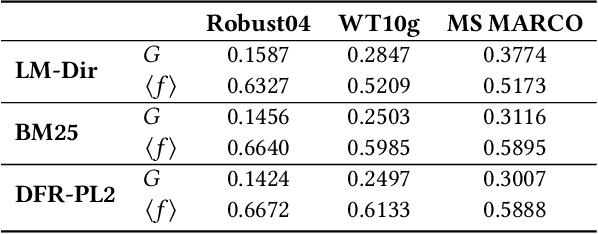Findability: A Novel Measure of Information Accessibility
Paper and Code
Oct 14, 2023



The overwhelming volume of data generated and indexed by search engines poses a significant challenge in retrieving documents from the index efficiently and effectively. Even with a well-crafted query, several relevant documents often get buried among a multitude of competing documents, resulting in reduced accessibility or `findability' of the desired document. Consequently, it is crucial to develop a robust methodology for assessing this dimension of Information Retrieval (IR) system performance. While previous studies have focused on measuring document accessibility disregarding user queries and document relevance, there exists no metric to quantify the findability of a document within a given IR system without resorting to manual labor. This paper aims to address this gap by defining and deriving a metric to evaluate the findability of documents as perceived by end-users. Through experiments, we demonstrate the varying impact of different retrieval models and collections on the findability of documents. Furthermore, we establish the findability measure as an independent metric distinct from retrievability, an accessibility measure introduced in prior literature.
 Add to Chrome
Add to Chrome Add to Firefox
Add to Firefox Add to Edge
Add to Edge